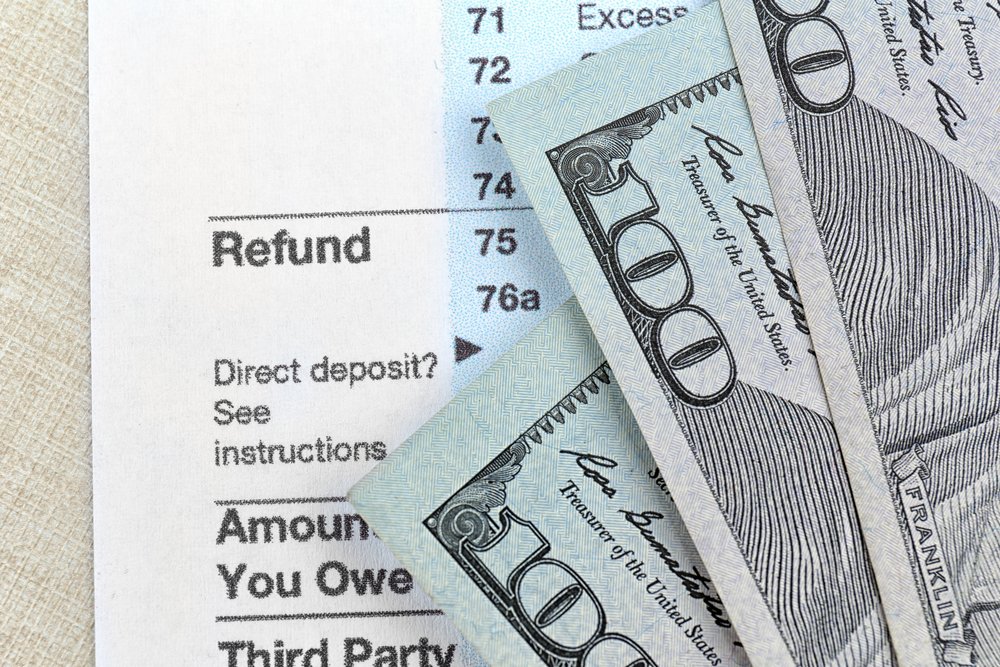Around tax time, bankruptcy attorneys often receive questions about tax refunds and filing for bankruptcy. You may be wondering whether it’s a good idea to wait for a refund to arrive before you file, or whether it’s better to do it as soon as possible. You probably also have questions about whether you’ll be able to keep the money from a refund you receive, especially if you’re facing wage garnishment, repossession, foreclosure or a lawsuit. Don’t worry. These are common concerns. We’re here to help you understand your options in this situation.
How Could My Tax Refund Benefit a Bankruptcy Filing?
Because a tax refund can be an asset used in a bankruptcy proceeding to pay your creditors back something, in general, it’s preferable to wait on filing for bankruptcy until you receive your tax refund. With your refund safely in hand, you can move forward with your next financial decision. In fact, you can use your tax refund to pay your bankruptcy attorney’s fees. However, waiting for your refund isn’t always the best course of action. Sometimes it can put something valuable at risk, like your tax refund itself, your paycheck, your car or even your home. Contact a bankruptcy attorney to be sure.
What if I’m Worried About a Garnishment, Repossession, Foreclosure or Lawsuit?
These are serious and time-sensitive matters. A wage garnishment can instantly reduce the size of your paycheck. A repossession or foreclosure can take away your car or home. And a lawsuit should never be delayed or ignored. If you have concerns like these, you might not want to delay filing for bankruptcy by waiting for your tax refund. Discuss your options with a bankruptcy attorney. Bankruptcy creates an automatic stay, or hold, on most garnishments, repossessions, foreclosures and other attempts to seize your assets.
If I File Before Receiving and Spending My Refund, Will the Bankruptcy Court Take it Away?
This is an understandable concern: Can the bankruptcy court take a tax refund? The answer is yes, it potentially can, but a bankruptcy attorney can help you prevent this. By filing for Chapter 7 or Chapter 13 bankruptcy, you hold off most seizures and create a new financial plan to resolve your debts. This may allow you to keep your refund, or at least apply it toward your bankruptcy plan, rather than having it seized as part of the bankruptcy estate.
What About My Earned Income Tax Credit?
The only part of a tax refund that can be deemed fully exempt is an Earned Income Tax Credit (EITC). The EITC is a benefit for working people with low to moderate incomes. Because the EITC is considered a welfare benefit, it is an exempt asset that is not subject to seizure by the court on behalf of your creditors. If you have more questions about the EITC, your tax refund and filing for bankruptcy, seek the advice of a bankruptcy attorney as soon as possible.
Sawin & Shea – Indianapolis Bankruptcy Attorneys
Filing for bankruptcy is not the end. It’s the beginning of a new financial life for you. The Indiana bankruptcy attorneys at Sawin & Shea can help you get rid of the overwhelming debt and advise you on life after bankruptcy. We are here for you during this life-changing process. Please do not hesitate to call us today at 317-759-1483 or send an email for a free consultation. We are ready to help.
Video Transcript
Hello, this is Richard Shea with Sawin & Shea. We received an email question today regarding “should I file my bankruptcy now, or should I wait for my tax refund?” That primarily is a fun little question we receive this time of year.
If at all possible, if it’s something you wish to wait and file your tax return first, so we can advise you on how to spend it, and then file your bankruptcy. Now usually speaking that’s if you have the luxury to wait – if you don’t have a pending garnishment or a lawsuit or repossession or foreclosure pending.
Waiting on a tax refund, for that to arrive, not only can you use it to pay your attorney fees to file a bankruptcy, but also you can use that money so that it is not seized by the bankruptcy estate in either a chapter 7 – where the trustee would actually take those funds – or in a chapter 13 where you may end up having to repay more of your debts to keep that tax refund.
As far as tax refunds go, the only portion of a refund that can be deemed exempt or protected is that attributable to earned income tax credit. Now earned income tax credit is different from child tax credit. Earned income tax credit is what you would call a welfare benefit, so therefore that is an exempt asset.
But, the short and sweet and simple of it is, if you can wait to receive your refund, by all means do so. If you cannot, well there’s ways to plan around it and make sure you get the maximum benefit. Make sure you call a bankruptcy attorney like ourselves that can walk you through that process.



